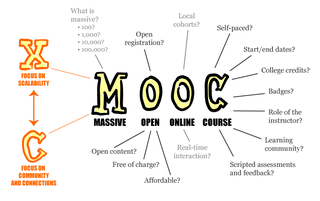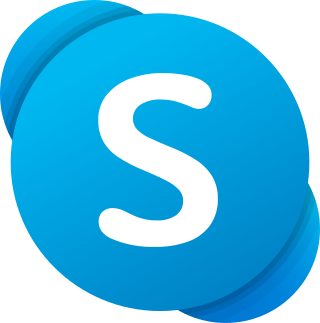 |
Peer 2 Peer University (P2PU) is a nonprofit online open learning community which allows users to organize and participate in courses and study groups to learn about specific topics. Peer 2 Peer University was started in 2009 with funding from the Hewlett Foundation and the Shuttleworth Foundation, with its first of courses in September of that year. An example of the "edupunk" approach to education, P2PU charges no tuition and courses are not accredited. [1] However, some courses in "The School of Webcraft" provide the opportunity for recognition of achievements through the Open Badges project. [2]

The William and Flora Hewlett Foundation, commonly known as the Hewlett Foundation, is a private foundation, established by Hewlett-Packard cofounder William Redington Hewlett and his wife Flora Lamson Hewlett in 1966. The Hewlett Foundation awards grants to a variety of liberal and progressive causes, as well as conservative organizations.
The Shuttleworth Foundation was established in January 2001 by South African entrepreneur Mark Shuttleworth as an experiment with the purpose of providing funding for people engaged in social change. While there have been various iterations of the foundation, its structure and how it invests in social innovation, the current model employs a fellowship model where fellows are given funding commensurate with their experience to match a year's salary, allowing them to spend that year developing a particular idea.

Edupunk is a do it yourself (DIY) attitude to teaching and learning practices. Tom Kuntz described edupunk as "an approach to teaching that avoids mainstream tools like PowerPoint and Blackboard, and instead aims to bring the rebellious attitude and DIY ethos of ’70s bands like The Clash to the classroom." Many instructional applications can be described as DIY education or edupunk.
Contents
P2PU offers some of the features of massive open online courses (MOOCs), but is focused on people sharing their knowledge on a topic or learning about a topic offered by another user with a DIY wiki-type mentality. [3] Unlike typical massive open online courses, anyone can create a course as well as take one. [4] Additionally, because of its less hierarchical nature, P2PU activities need not necessarily be Courses; the admin of the learning environment can select from Study Group and Challenge as well as creating their own term.

A massive open online course is an online course aimed at unlimited participation and open access via the web. In addition to traditional course materials, such as filmed lectures, readings, and problem sets, many MOOCs provide interactive courses with user forums to support community interactions among students, professors, and teaching assistants (TAs), as well as immediate feedback to quick quizzes and assignments. MOOCs are a recent and widely researched development in distance education, first introduced in 2006 and emerged as a popular mode of learning in 2012.










